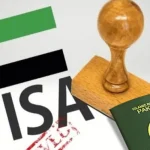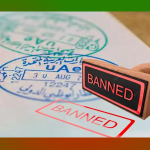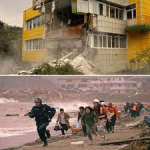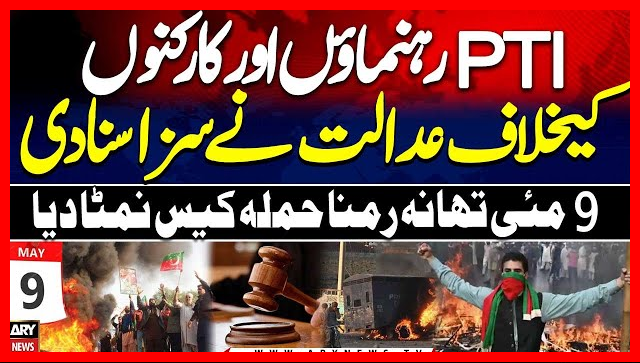A Comprehensive Review
Introduction
The violent events of May 9, 2023—triggered by the arrest of former Prime Minister Imran Khan—led to widespread unrest, vandalism, and attacks on military and government installations across Pakistan. Over two years later, Pakistani courts have delivered sweeping verdicts, sentencing hundreds, including high-ranking political leaders from Imran Khan’s party, Pakistan Tehreek‑e‑Insaf (PTI).
This article offers a full account of the court convictions, including mass verdicts handed down by anti‑terrorism courts (ATCs) and military courts, reactions from political parties and international observers, legal controversies, and broader implications for Pakistan’s judicial landscape.
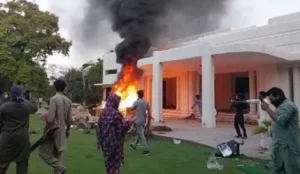
1. Background: What Happened on May 9, 2023?
On May 9, 2023, supporters of former Prime Minister Imran Khan took to the streets following his arrest from the Islamabad High Court premises. Protests escalated into violent riots, with demonstrators targeting key installations including the army headquarters in Rawalpindi, the PAF base in Mianwali, ISI offices, and the residence of the corps commander in Lahore. At least eight people died, and hundreds were injured amid widespread arson and destruction of public and military property, with estimated losses of Rs 197 million in Punjab alone.
Authorities used geofencing data to link dozens of PTI leaders—including Imran Khan—to dispatching instructions to rioters, though PTI vehemently denied orchestrating these acts.
In the aftermath, the government initiated legal proceedings in multiple forums, including normal ATCs and field general court martial (military courts), citing constitutional breaches.
2. Supreme Court Ruling on Military Court Trials
In October 2023, Pakistan’s Supreme Court delivered a landmark decision declaring that civilians cannot legally be tried in military courts during peacetime. It ruled Sections 2(1)(d) and 59(4) of the Army Act unconstitutional, ordering that May 9 suspects should be tried in ordinary criminal or anti‑terrorism courts.
Despite this, military trials proceeded under special constitutional allowances. Appeals and constitutional petitions remain pending in the SC regarding jurisdiction and legality of military court convictions. The Supreme Court also set strict deadlines for ATCs to complete May 9 trials—mandating trail closure within four months, with progress reports due every 15 days.
3. Verdicts Delivered: Anti‑Terrorism and Military Courts
Military Court Verdicts (2024)
- In December 2024, military courts sentenced 25 civilians to 2–10 years of rigorous imprisonment for their alleged roles in attacks on military installations.
- Subsequently, another phase saw 60 more civilians sentenced by military courts—some of whom were identified as PTI leaders. Sentences ranged between two and ten years.
- The ISPR emphasized that all legal standards and due process were followed and noted that convict appeals remain available.
- In January 2025, the military accepted mercy/remission petitions of 19 May 9 convicts, with their early release expected.
Anti‑Terrorism Court Verdicts (July 2025)
- On July 31, 2025, an ATC in Faisalabad sentenced 196 individuals, including senior PTI figures such as Omar Ayub Khan and Senator Shibli Faraz, to 10 years imprisonment each for involvement in attacks on military and government buildings. Others received 1–3 year sentences, while 77 defendants were acquitted due to insufficient evidence.
- A Sargodha ATC, in a related proceeding, jailed Malik Ahmed Khan Bhachar, Ahmad Chattha, and Chaudhry Bilal Ejaz, along with dozens of others—imposing 10-year sentences across the board.
This cluster of ATC verdicts marks the third wave of mass convictions in July 2025, significantly weakening PTI’s parliamentary presence.
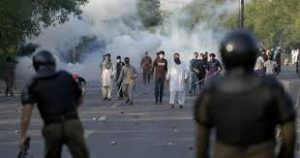
4. Legal Controversies and Rights Debate
Fair Trial Concerns & International Criticism
- The use of military courts to try civilians drew heavy criticism from human rights groups, the United Nations, and legal experts who flagged the courts’ lack of transparency, restricted appeal rights, and opaque procedures.
- The United States and United Kingdom condemned convictions of civilians in military courts as lacking due process and judicial independence, urging Pakistan to uphold international obligations.
PTI’s Reaction
- PTI leaders denounced the verdicts as politically motivated, citing fabricated evidence and lack of impartial hearings. They vowed to challenge all convictions on appeal.
- Several convicted parliamentarians are subject to petitions for early release and PTI has planned protests for August 5, 2025, to commemorate Imran Khan’s incarceration and demand justice.
5. Broader Political and Social Impact
Outcome for PTI and Parliamentary Repercussions
- With over 100 senior party members and parliamentarians jailed—leading to loss of seats under Pakistani law—the rulings have significantly weakened PTI’s political weight.
- The convictions mark perhaps the largest politically charged mass sentencing in Pakistan’s history, raising fears of judicial overreach.
Mandate of the State and Rule of Law
- Government officials, including Punjab Information Minister Azma Bokhari, welcomed the rulings as a reaffirmation of state authority and deterrence against violent extremism.
- The Ministry of Law called the verdicts a sign that the law applies equally, irrespective of one’s political status.
Public and Legal Discourse
- Critics argue decision timelines set by the Supreme Court (e.g., 4‑month deadline for ATCs) were not followed uniformly, raising concerns of judicial delay and selective enforcement.
- The SC bench has warned courts not to remain silent in face of injustice—indicating vigilance over trial fairness despite political pressures.
6. Detailed Breakdown of Sentences
Military Court Phases
- First phase (Dec 2024): 25 civilians received 2–10 year sentences for targeting army posts.
- Second phase: Additional 60 individuals were convicted in military courts; high-profile cases included alleged PTI supporters attacking GHQ, PAF base, and other military sites.
Anti‑Terrorism Court Verdict Details (July 2025)
- 196 convicts, including Omar Ayub Khan and Shibli Faraz: 10 years each.
- Others involved in smaller roles received 1–3 year sentences.
- 77 defendants were acquitted due to weak or insufficient evidence.
- Sargodha ATC: Sentenced Malik Ahmed Khan Bhachar, Ahmad Chattha, Bilal Ejaz to 10 years.
7. Legal Implications and Constitutional Questions
Military vs Civilian Jurisdiction
- Despite the Supreme Court decision limiting military trials of civilians, these proceedings continued, prompting debate over constitutional overreach.
- Appeals to challenge military court verdicts remain pending before the SC, which may reshape legal standards for civilian trials.
Enforcement Deadlines and Delay
- The SC’s April 2025 order requiring ATCs to conclude hearings within four months has been partially ignored, raising questions about enforcement of judicial directives.
Rights of the Accused
- Convicts retain the right to legal appeal, including mercy petitions. In January 2025, the military granted remission to 19 convicts, allowing imminent release.
8. International Law Perspective
- International observers, including the UN, Human Rights Watch, and Amnesty International, criticized Pakistan for using military courts against civilians, suggesting violations of fair trial standards and human rights norms.
- The US, UK, and EU expressed concern over transparency and procedural fairness, urging Pakistan to align with the International Covenant on Civil and Political Rights.
9. Public Reaction and Societal Divides
Supporters and Opponents
- Government supporters view the verdicts as necessary to uphold state integrity and discourage political violence.
- PTI cadres see the trials as politically engineered, citing dramatic delays in trials, alleged fabricated witnesses, and denial of basic rights.
Media and Civil Society Voices
- Civil society advocates have warned that over-reliance on military courts weakens civilian judicial authority.
- Lawyers and activists have filed petitions arguing these convictions set a dangerous precedent for political repression.
10. What Happens Next?
- Many convicted individuals are in the appeal process, while others await mercy petitions or remission decisions.
- PTI is mobilizing against the verdicts, with public rallies planned from August 5, 2025, marking the anniversary of Khan’s imprisonment.
- Constitutional petitions challenging military jurisdiction continue in the Supreme Court, which may redefine limits of military justice.
- International pressure is likely to increase, particularly regarding human rights compliance, fair trial guarantees, and judicial transparency.
Conclusion
The May 9, 2023 riots and subsequent court rulings represent a pivotal moment in Pakistan’s political and judicial history. The sentencing of over 100 lawmakers, party leaders, and activists, including figures like Omar Ayub Khan, Shibli Faraz, Malik Bhachar, and Bilal Ejaz, under anti-terrorism and military courts underscores deep legal, political, and constitutional fault lines.
While authorities hail the verdicts as an assertion of law and state authority, critics warn of erosion of civil rights, misuse of military courts, and politically motivated justice. The Supreme Court’s pending rulings on military jurisdiction and the fairness of trials remain key to shaping Pakistan’s future legal landscape. Meanwhile, PTI’s challenge through protests, appeals, and public mobilization suggests this issue will continue to dominate the national conversation.



